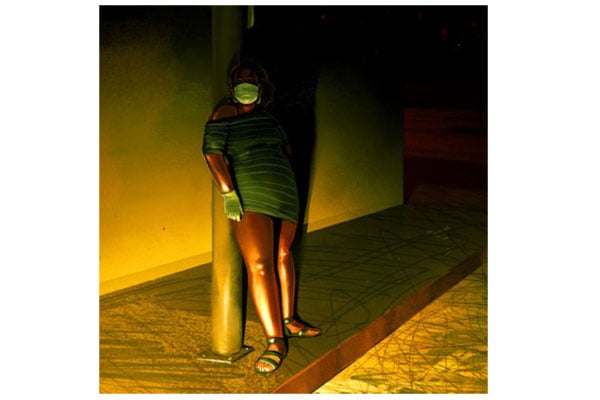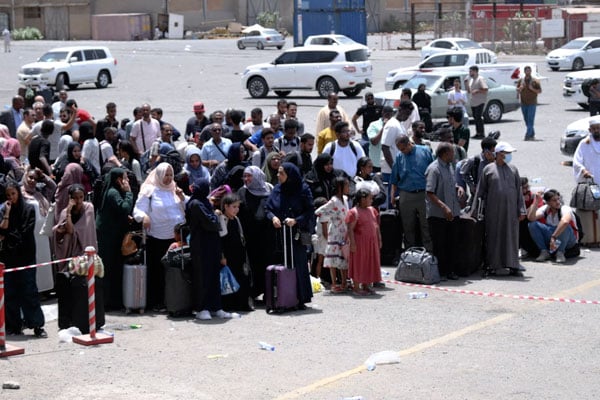How local bars, lodges are fueling sex work

What you need to know:
- Mr Lauben Tumwine, the chairperson of Rubaya Sub-county in Mbarara, said the rate at which young girls hang out until late at night in bars is worrying.
Sex workers are relocating to villages as a result of mushrooming bars and lodges in some trading centres in Mbarara and other western districts.
The towns now have an average of between 10 and 15 bars, beaming with young women dressed skimpily to attract men.
In a mini-survey conducted by the Daily Monitor in Mbarara and Rwampara districts, sex workers say many circumstances are forcing them onto the streets.
Mable* (not her real name) whom we found in Rwentaga Trading Centre, Bubaare Sub-county in Kashari South, Mbarara was lured into sex work after her husband divorced her.
“I couldn’t aford to look after my two children, so I was attracted to the streets by one of my friends who said the business was lucrative,” she said.
Mable says she charges Shs10,000 for quick sexual pleasure.
“I scouted this place with a colleague who came here first and got employed as a barmaid. She convinced me of the opportunities to make money,” she added.
The area is busy with many institutions and organisations that bring potential clients to the sex workers.
“We also have connections in big towns and sometimes men follow us here because they easily evade being tracked by their families,” Ms Mable added.
Ms Meron Mutetsi, 45, who operates a bar in Kaiho Trading Centre in Rwensinga Parish, Ndeija Sub-county, Rwampara District, said many of her clients are married men.
Mr Lauben Tumwine, the chairperson of Rubaya Sub-county in Mbarara, said the rate at which young girls hang out until late at night in bars is worrying.
“The trend is increasing. Young girls do not want to work and they move around with multiple men,” he said.
Mr Tumwine added that the trend is engineered by domestic violence.
“When parents separate, chances are high that the children will be left with no one to question their movements. Other parents are poor and their children drop out of school, which exposes them to sex trade,” Mr Tumwine said.
To stop the trend, the leaders said they are partnering with religious leaders to mend broken families.
“We are sensitising parents to come together so that we end domestic violence. Religious leaders are also helping us in educating couples to be strong in marriage and take care of their children,’’ Mr Tumwine said.
Mr Tom Karuhanga, the chairperson of Bukiro Town Council, said the vice is being perpetuated by poverty.
“As the cost of living becomes high in big towns and cities, people tend to move to developing towns and trading centres where life is a little cheap. Among the people migrating are sex workers,” he said, adding that as they are not letting the vice compromise their moral-social standards.
Mr Charles Mugisha, a resident of Nyamareebe Sub-county in Ibanda District, said girls between the ages of 16 and 17 are the most targeted.
“Local bar owners recruit girls around 16 years of age claiming that they attract men and the girls end up being sex workers,” he said.
Mr Agustino Twesigye, the chairperson of Kakindo I Cell, Ishongororo Town Council in Ibanda, attributed the increasing trend to overdrinking.
“Alcoholism has greatly contributed to mushrooming sex workers in rural areas. There are all types of cheap drinks in bars and cinema halls. Women sell themselves for as cheap as Shs5,000,”she said.
Mr Samson Kasasira, the Rwizi region police spokesperson, said: “The vice is challenging to tackle in rural areas. The sex workers go to social places such as bars and pretend to be customers. It is not like in big towns where they are in brothels and can easily be identified.”
HIV PREVALENCE
Results for the 2020 Uganda Population-Based HIV Impact Assessment (UPHIA) survey, which is usually conducted by the Ministry of Health to provide estimates of HIV/Aids prevalence, show that the prevalence of HIV/Aids among those aged 15 and above is higher in urban areas with 7.1 percent and at 5.2 percent in rural areas.
The trend could change as sex workers find solace in growing trading centres in rural areas.




